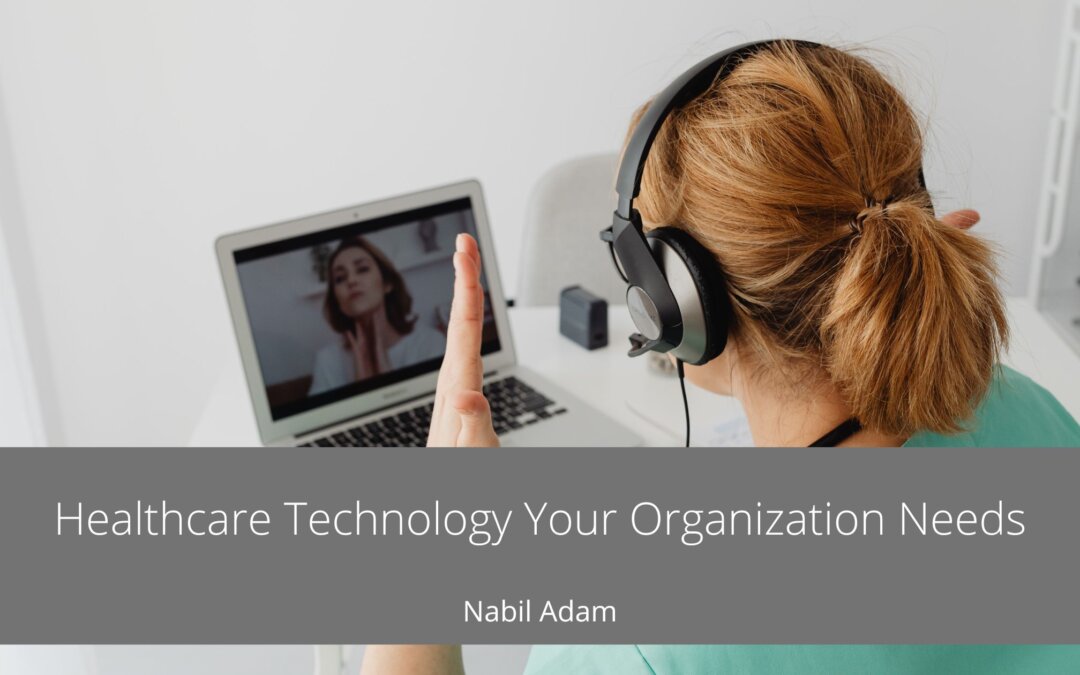In today’s rapidly evolving healthcare landscape, integrating technology has become imperative for organizations to deliver high-quality care efficiently and effectively. With advancements in healthcare technology, organizations can streamline processes, enhance patient outcomes, and stay competitive.
1. Electronic Health Records (EHR):
Electronic Health Records (EHR) systems have revolutionized healthcare by replacing paper-based patient records with digital versions. EHRs allow for seamless information sharing among healthcare providers, reduce errors, improve patient safety, and enhance care coordination. They also facilitate data analytics, helping organizations make informed decisions about patient care and resource allocation.
2. Telehealth and Telemedicine:
The COVID-19 pandemic accelerated the adoption of telehealth and telemedicine solutions. These technologies enable healthcare providers to deliver remote care, consultations, and monitoring services. They improve accessibility for patients, particularly in rural or underserved areas, and enhance convenience while reducing the burden on healthcare facilities.
3. Health Information Exchange (HIE):
Health Information Exchange platforms enable the secure sharing of patient data between different healthcare organizations. HIEs promote interoperability, allowing providers to access critical patient information from various sources, leading to better-informed decisions and improved patient outcomes.
4. Clinical Decision Support Systems (CDSS):
CDSS platforms use algorithms and patient data to assist healthcare providers in making evidence-based decisions. They provide alerts, reminders, and recommendations, helping clinicians diagnose conditions, select appropriate treatments, and prevent medical errors.
5. Health Analytics and Business Intelligence:
Health analytics tools leverage data to extract valuable insights, identify trends, and improve operational efficiency. These solutions can optimize resource allocation, reduce costs, and enhance patient care quality through data-driven decision-making.
6. Artificial Intelligence (AI) and Machine Learning:
AI and machine learning algorithms are increasingly used in healthcare for tasks like medical imaging analysis, predictive analytics, and population health management. These technologies can identify patterns and trends that may be challenging for humans to discern, leading to earlier disease detection and better treatment plans.
7. Internet of Things (IoT) Devices:
IoT devices, such as wearable health monitors and smart medical equipment, provide real-time patient data. Healthcare organizations can use this data for remote patient monitoring, chronic disease management, and early intervention, improving patient outcomes and reducing hospital readmissions.
8. Cybersecurity Solutions:
As healthcare organizations embrace technology, they must prioritize robust cybersecurity measures to protect patient data from cyberattacks. Investing in cybersecurity solutions is essential to safeguard patient information and maintain trust within the healthcare ecosystem.
9. Mobile Health (mHealth) Applications:
mHealth apps empower patients to take control of their health. These applications provide access to health information, appointment scheduling, medication reminders, and fitness tracking. They can also enable secure communication between patients and healthcare providers.
10. Compliance and Credentialing Software:
Ensuring regulatory compliance and efficient credentialing processes is crucial for healthcare organizations. Compliance and credentialing software can streamline these processes, reduce administrative burden, and enhance organizational efficiency.
In conclusion, the healthcare industry continually evolves, and technology plays a pivotal role in this transformation. Investing in the right healthcare technologies can improve patient care, streamline operations, and position your organization as a high-reliability healthcare provider in today’s competitive landscape. As technology continues to advance, staying up-to-date with these essential technologies is vital for the success of your healthcare organization.

